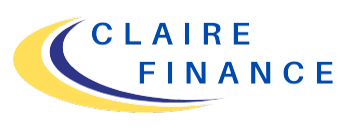In the dynamic world of finance, technological innovation has led to the emergence and rapid expansion of fintech, a sector that melds financial services with cutting-edge technology. This burgeoning industry has revolutionized how businesses and consumers engage with financial products, offering an array of inventive solutions ranging from digital payments to blockchain-based transactions. However, this rapid growth is not without its complexities, particularly in the realm of regulatory compliance. As fintech firms extend their global reach, they grapple with a diverse and evolving set of financial regulations. Such a landscape presents a unique blend of hurdles and opportunities, with compliance serving as both a challenge and a competitive edge.
The Regulatory Quagmire in 2024
This year marks a pivotal moment in fintech regulation. The sector faces an intricate web of global regulatory frameworks, each with its distinct nuances and implications. These regulations, though varied, share a common objective: ensuring the stability and integrity of financial markets while fostering innovation. Significant legal and regulatory developments have reshaped the landscape, impacting everything from digital currencies to cross-border payments. As fintechs navigate these waters, they encounter various obstacles. Complying with multifaceted international regulations demands resources and expertise, often straining young ventures. Furthermore, the fintech world has witnessed notable failures, underscoring the perils of overlooking regulatory compliance. These cautionary tales highlight the necessity of a robust regulatory framework, not only for the stability of individual companies but for the sector’s overall health.
Compliance as a Stepping Stone
Amid these challenges, regulatory compliance emerges as a beacon of opportunity for fintech firms. Adherence to regulations can bolster a company’s credibility, fostering trust among consumers, investors, and partners. Notably, some fintechs have turned regulatory compliance into a strategic advantage, setting themselves apart in a crowded marketplace. By embracing regulatory frameworks, these firms demonstrate a commitment to stability and reliability, key factors in attracting and retaining customers. Moreover, in a sector where trust is paramount, compliance serves as a testament to a company’s dedication to ethical practices and customer protection.
The Technology Edge in Regulatory Adherence
In addressing these regulatory challenges, technology plays a pivotal role. Advanced tools like artificial intelligence, blockchain, and open banking are not just at the heart of fintech innovation; they are also crucial in managing compliance risks. These technologies enable firms to streamline compliance processes, reduce errors, and enhance efficiency. By leveraging technological solutions, fintechs can stay ahead of the regulatory curve, adapting swiftly to new requirements. This tech-centric approach to compliance not only mitigates risks but also opens doors to new possibilities, paving the way for continued innovation in the fintech space.
In conclusion, the journey through the regulatory labyrinth of fintech is fraught with complexities, yet it also offers pathways to trust, credibility, and innovation. As the sector evolves, those who adeptly navigate these waters will likely emerge as leaders, shaping the future of finance. For fintech companies, the message is clear: embrace regulation, leverage technology, and stay agile in an ever-changing landscape.
